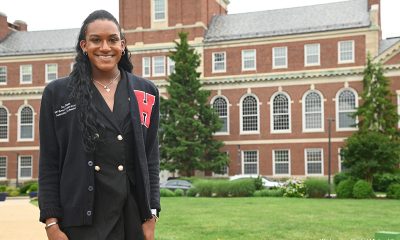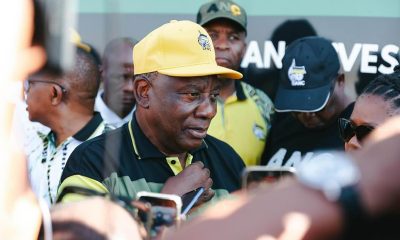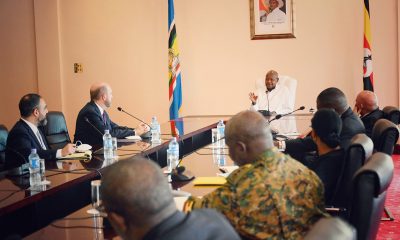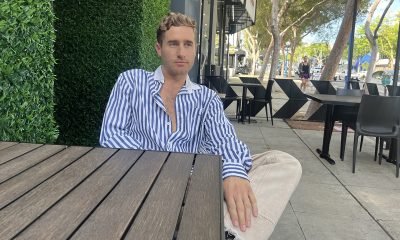News
Mexico City lawmakers approve trans rights bill
Measure to allow legal gender changes without court order
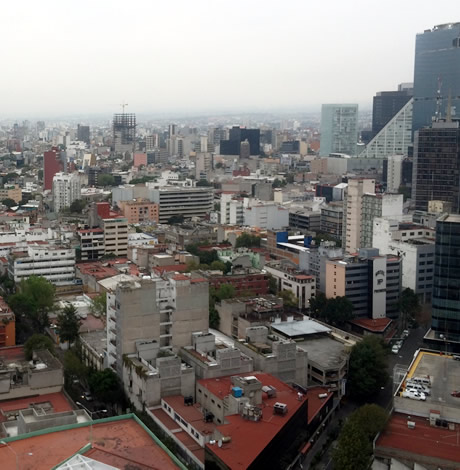
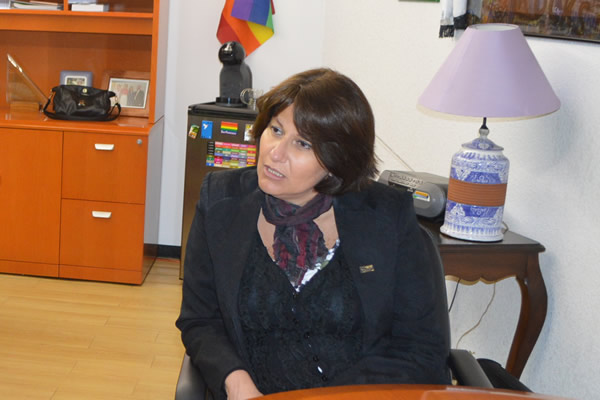
Jacqueline L’Hoist Tapía, president of the Mexico City Council to Prevent and Eliminate Discrimination, supports transgender people’s ability to legally change their gender in the Mexican capital without a court order. (Photo by Angélica Pineda)
Members of Legislative Assembly of the Federal District, in which Mexico City is located, approved the measure by a 42-0 vote margin. Six lawmakers abstained from the vote on the measure that Mexico City Mayor Miguel Ángel Mancera proposed.
Manuel Granados Covarrubias of the Party of the Democratic Revolution, known by the Spanish acronym PRD, welcomed the proposal’s approval.
“It eliminates cumbersome trials and judicial proceedings, procedures, to generate the administrative change of a legal action to which everyone has the right,” said Granados in a press release the Legislative Assembly of the Federal District released after lawmakers approved the measure. “Their dignity is also recognized.”
The Mexico City Commission to Prevent and Eliminate Discrimination, known by its Spanish acronym COPRED, launched a campaign in support of the measure.
COPRED spokesperson René Said Nieto told the Washington Blade that Mexico City on Thursday “took a major step forward” towards the recognition of trans people.
“(The measure) guarantees the rights of people to the recognition of their gender identity,” said the Human Rights Program of the Federal District in a statement.
Mexico City is the first city in Latin America to allow trans people to legally change the gender on their birth certificates without a medical examination. The Mexican capital’s comprehensive anti-discrimination law already includes gender identity and expression and designates transphobia as a form of discrimination.
Argentina President Cristina Fernández de Kirchner in 2012 signed a law that allows trans Argentinians to legally change their gender on official documents without sex-reassignment surgery and an affidavit from a doctor or another medical provider. The Chilean Senate next week is expected to vote on a bill that would allow trans people in the South American country to legally change their name and sex without sex-reassignment surgery.
Supporters of Mariela Castro, daughter of Cuban President Raúl Castro, credit her with successfully lobbying her father’s government to begin offering free sex-reassignment surgery under the country’s national health care system in 2008.
Africa
Kenyan advocacy group offers safety tips to LGBTQ hookup app users
Blackmail, kidnappings and assaults are commonplace

The growing cases of queer people in Africa becoming victims of blackmail, physical and sexual assault from online hook-ups have compelled a Kenyan LGBTQ rights group to work with the community to help it stay safe when using digital platforms.
Upinde Advocates for Inclusion held a 3-day training from May 11-14 to teach queer people about unsafe social media and dating app hook-up practices that suspected homophobes exploit.
The Mombasa-based group of which Lizzie Ngina is executive coordinator noted lesbian, bisexual and queer women, and gender non-conforming people are the most frequent targets online and on Grindr and other dating apps.
“LBQ women and GNC persons confront major challenges in terms of digital security and data protection, freedom of expression, assembly, association, speech, privacy, protest and online organizing,” Upinde Advocates for Inclusion stated.
Although the digital platforms were seen as convenient meet-up places for LGBTQ people in overcoming physical anti-gay attacks, Upinde Advocates for Inclusion said anti-gay discrimination, marginalization, gender-based violence, misinformation, and disinformation limits LGBTQ and gender non-conforming people from accessing the social media services.
Queer people while using dating apps and social media for hookups were, however, urged to first trust their intuition before deciding to have a physical meeting with people with whom they chat online.
“If it does not seem like someone you are messaging is using their true identity, they probably are not. In this case, do not agree to meet them in person,” Upinde Advocates for Inclusion warned.
It asked LGBTQ users to ensure the first in-person meeting with someone they met online is in a public place that is queer-friendly and known to them. Upinde Advocates for Inclusion also advised queer people to inform their trusted friends or family about their meeting plans, the place, and how long they expect it will take place in order to ensure someone can intervene if something goes wrong.
“Organize your own means of transport to and from the meeting, and do not accept a free ride from a stranger,” the group warned. “Also, do not move to a secondary location if you feel unsure during the meeting.”
Upinde Advocates for Inclusion also warned queer app users to remain sober during the meeting and cautioned against leaving their food or drinks unattended in order to avoid any potential risks associated with spiking.
The National Gay and Lesbian Human Rights Commission, Ishtar-MSM and other Kenyan LGBTQ advocacy groups that offer legal aid to queer people last year reported about 100 cases of blackmail, extortion, physical and sexual assault against their members by suspected homophobes they met on dating apps and social media.
The two organizations this month noted 10 of the cases are expected before courts soon, although they said most victims of anti-gay attacks don’t report them to the authorities because they fear further stigmatization and discrimination. Consensual same-sex sexual relations also remain criminalized in Kenya.
Targeting the LGBTQ community on digital platforms and dating apps is not unique to Kenya.
The Washington Blade last month reported it is still risky for queer Nigerians to search for a partner or to use gay dating apps infiltrated by homophobes who lure them to meet in-person and then rob or assault them. South African authorities last year arrested four men in connection with the targeting of Grindr users.
LGBTQ Kenyans urged to protect themselves at protests
Upinde Advocates for Inclusion in their workshop taught participants about the signs that suspected homophobes or their associates have compromised their devices. They include unusual activities on their cell phones that include calls with untraced history, disappearing blank messages, blinking screens, high data consumption, devices that overheat when not in use and echo when picking calls and quick battery depletion with minimal use.
“If you suspect your device is compromised, do not format or reset it, log out all the accounts, find an alternative device to use, change the password for the accounts on the device, and do not connect the gadget to any other devices,” Upinde Advocates for Inclusion warned.
The group also taught queer people about how they should conduct themselves when taking part in street protests amid anti-gay attacks. Upinde Advocates for Inclusion advised them to always to identify safe alternative routes to and from the protests, wear comfortable running shoes, and always carry a spare outfit that is not LGBTQ-specific.
“If you are in a group, always strategize on having a meeting point should there be any danger or should you get separated,” the group stated. “Also, try to split up responsibilities among the group so that one person can’t be targeted.”
Upinde Advocates for Inclusion also urged queer people to always leave a protest before it ends, to have an emergency contact on speed dial or memorize it for immediate help in case of danger and to always to keep in touch with a trusted contact who is familiar with the protest but not attending it.
District of Columbia
Meet Jay Jones: Howard’s first trans student body president
‘Be the advocate that the child in you needed most’

Jay Jones was born to a conservative Christian family where she said being gay was not socially acceptable. This year, she was named Howard University Student Association’s first transgender president.
When Jones was younger, she enjoyed activities that are traditionally “feminine.” She said she has always had a higher-pitched voice, talked with her hands and preferred playing inside with Barbie dolls.
Jones came out as gay in eighth grade to her sister who said, “Girl, I been knew.”
“I think that was very much a turning point year for me because it was a year where I kind of knew how I was feeling,” Jones explained. “There were emotions I felt ever since I was younger, but I never could put verbiage or language to it,” she said.
That same year, Jones was elected as the first student body president of her middle school. She said that is where her leadership journey began and that year was pivotal in her life.
When Jones won her first campaign as HUSA vice president, she was feeling unsure about her gender identity after she was asked which pronouns she wanted to use.
“I said ‘I don’t really know because I don’t feel comfortable using he/him pronouns because I don’t think that expresses who I am as a person,’ but at that time, I don’t think I was to the point where ‘she/her’ was necessary,” she said.
Outside of student government, she was part of a traditionally all-male organization at Howard, Men of George Washington Carver Incorporated. There, she said she always felt like the sister to all of her brothers.
“I remember I would cringe sometimes when they would call me brother,” she said.
Even though she felt like she aligned with she/her pronouns she said she was “scared” of what it could mean for her moving forward.
She knew that her given pronouns were not a reflection of who she was but wasn’t sure what to do about it. She was talking with Eshe Ukweli, a trans journalism student who asked Jones a simple question that clarified everything.
“‘If you were to have kids or if your brother or your sister or someone around you was to have kids, what do you imagine them calling you?’ and I realized, it was always ‘mom,’ it was always ‘sister,’ and it was always ‘aunt,’” she said.
Jones still looks to Ukweli as a mentor who provides her with wisdom and guidance regularly.
“She knows what it’s like to do hormones, she understands what it’s like to be in a place of leadership and to be in a place of transition,” she said. “There is no amount of research, no amount of information, no amount of anything that you can take in, that could ever equate to that.”
In 2023, Jones’s junior year, Howard University was named the No. 1 most inclusive Historically Black College or University for LGBTQ-identifying students by BestColleges.
Howard has a storied past with the queer community. In the 1970s, Howard hosted the first National Third World Lesbian and Gay Conference, according to a 1979 Hilltop archive. However, multiple articles in the ‘90s highlighted homophobia on Howard’s campus.
“’There is the feeling … that by coming out there will be a stigma on you,” said bisexual Howard student, Zeal Harris in a 1997 Hilltop interview.
As a result, multiple LGBTQ advocacy organizations were created on Howard’s campus to combat those stigmas.
Clubs like The Bisexual, Lesbian, and Gay Organization of Students At Howard (BLAGOSAH) and the Coalition of Activist Students Celebrating The Acceptance of Diversity and Equality (CASCADE) were formed by Howard University students looking to create a safer campus for queer students.
However, Jones didn’t know much about this community when she was entering Howard. She recognized Howard as the HBCU that produced leaders in the Black community, like Thurgood Marshall, Toni Morrison, and Andrew Young.
“This university has something about turning people into trailblazers, turning people into award-winning attorneys, turning people into change makers,” she said. “I think that was one of my main reasons why I wanted to come here, I wanted to be a part of a group of people who were going to change the world.”
So, as she entered her junior year at Howard, she set out to begin her journey to changing the world by changing her school.
This school year she ran for HUSA president, the highest governing position on Howard’s campus. She said that this was the hardest campaign she has ever run at Howard and that she warned her team the night before election result announcements that she would start weeping if their names were called.
“During the midst of that campaign season, I was in an internal kind of battle with members of my family not accepting me, not embracing me, calling me things like ‘embarrassment’ and not understanding the full height of what I was trying to do and who I was becoming,” she said.
Jones said the experience was mentally draining and a grueling process but that she leaned on her religion to help her see the light at the end of the tunnel.
“I’m a very devout Christian and for me, I was like, ‘It was nothing but God that got me through, it was nothing but God that got me through this,’” she said. “If people knew what I went through you would be falling on your knees and weeping too.”
Jones said that in high school she had to really work through her relationship with God because she was raised in a church that said gay people were going to hell. So, when she came out as a trans woman she had to re-evaluate the relationship she worked so hard to create with God, again.
She reflected and realized that God didn’t use the perfect people in the Bible but that he works through everyone.
“So if God can use all of those people, what is there to say that God can’t use the queer? What is it to say that God can’t use trans people,” she said.
After she graduates next year, Jones hopes to work in campaign strategy. She said the ‘lesser of two evils’ conversation isn’t working anymore for Gen-Zers and wants to pioneer new ways for young voters to engage with politics.
“Really working on engaging and mobilizing young voters on how to understand and utilize their power, especially as it relates to Black and Brown people,” she said.
When she became vice president of HUSA last year she said she did it for for all the little Black queer children down South who haven’t gotten their chance to dance in the sun yet.
“If there was anyone ever coming in who’s trans, the No. 1 piece of advice that I can give you is, be the role model that the inner child in you needed most, be the advocate that the child in you needed most,” she said “And most importantly, be the woman that the child saw in you but was too scared to be.

U.S. Federal Courts
4th Circuit rules Montgomery County parents cannot opt children out of LGBTQ-specific lessons
Lawsuit filed in May 2023
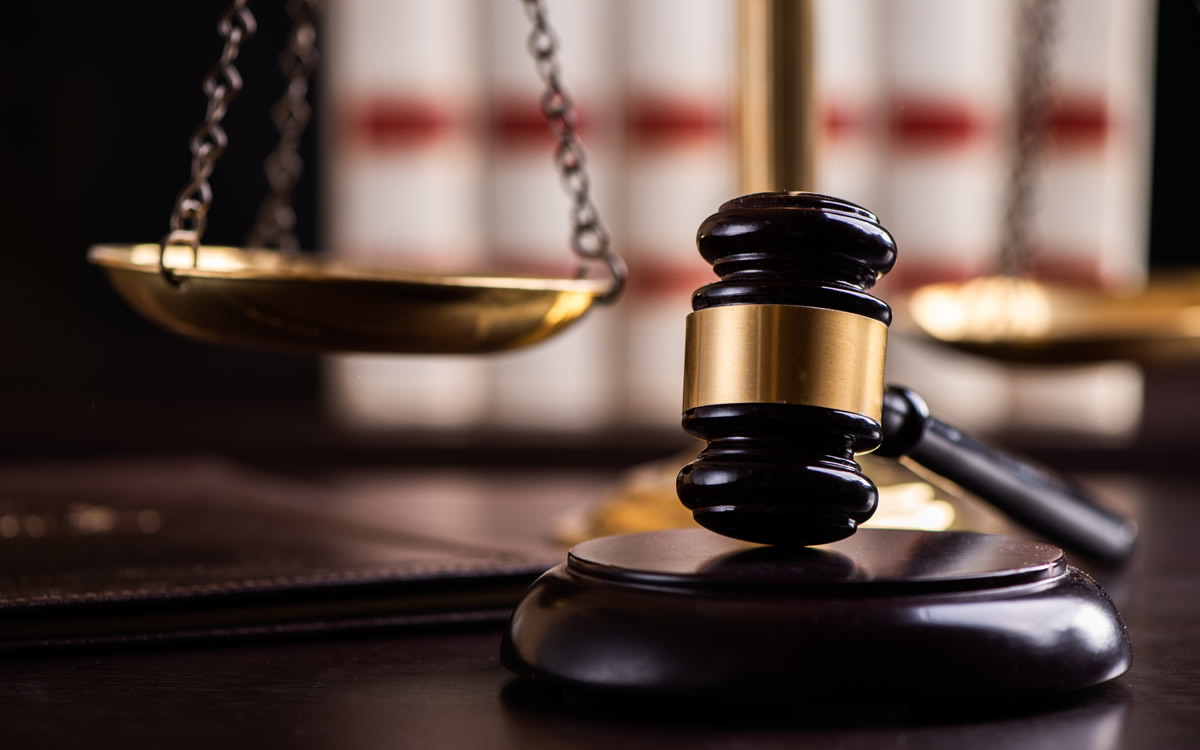
A federal appeals court on Wednesday ruled a group of Montgomery County parents cannot “opt out” their children from classes in which lessons or books on LGBTQ-related topics are taught.
The parents filed their lawsuit in May 2023.
An American Civil Liberties Union press release notes the lawsuit challenges Montgomery County Public Schools’ policy that “mandates the inclusion of literature with LGBTQ+ characters as part of the ELA (English and Language Arts) curriculum, aiming to promote understanding and acceptance among students.”
“Although the district originally allowed parents to opt their children out of some ELA lessons, it rescinded the opt-out policy because the number of requests grew too difficult to manage, student absenteeism soared, and it created a stigmatizing environment for students who are LGBTQ or have LGBTQ family members, undermining the purpose of the inclusivity requirement,” said the ACLU.
U.S. District Judge Deborah L. Boardman of the U.S. District Court for the District of Maryland ruled against the parents. The 4th U.S. Circuit Court of Appeals in Richmond, Va., upheld the decision.
“We’re talking about books like ‘Pride Puppy,’ which is light-hearted and affirming,” said ACLU of Maryland Legal Director Deborah Jeon in a press release. “During a time of intensifying calls to ban books and limit access to information about LGBTQ+ people and identities, this ruling in support of inclusion in education matters.”

